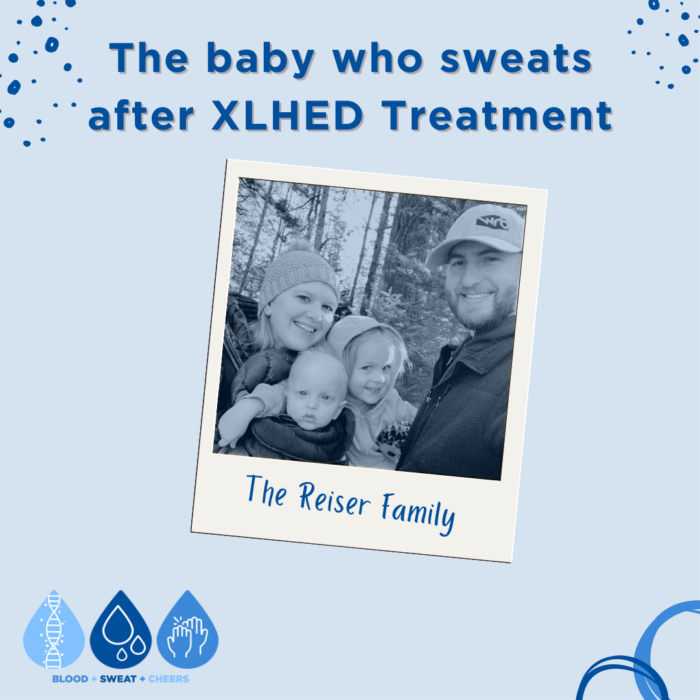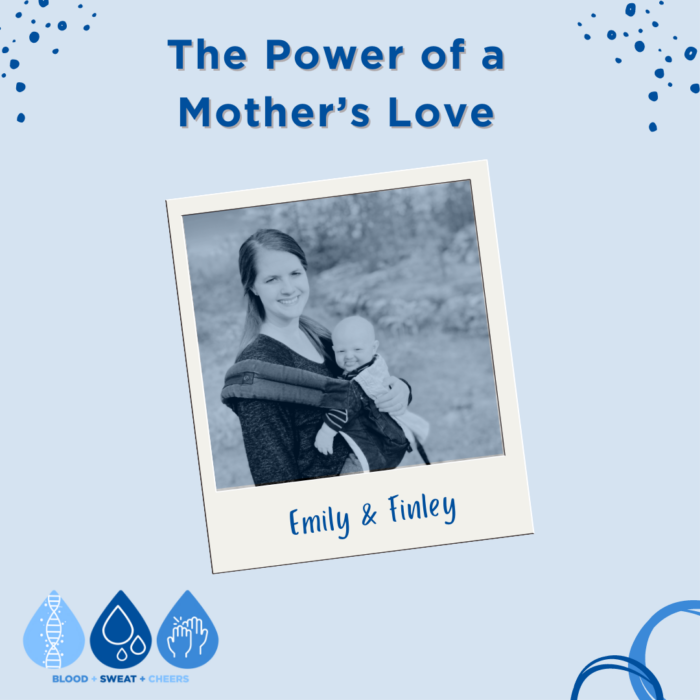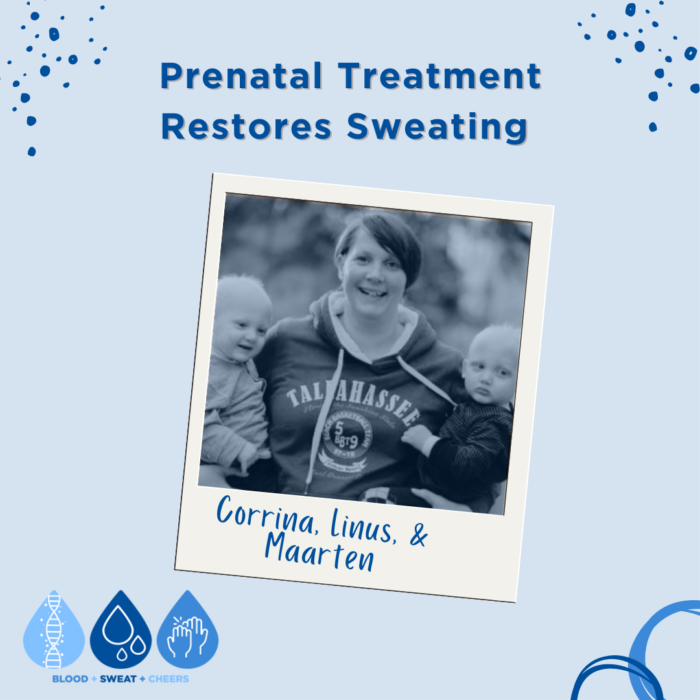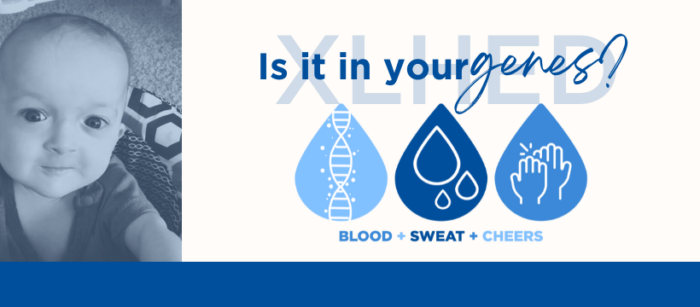
The EDELIFE clinical trial is studying a potential treatment, called ER-004, for x-linked hypohidrotic ectodermal dysplasia (XLHED) in unborn boys. If approved, the treatment would be life-changing for our community.
Prof. Dr. Holm Schneider at the University Hospital Erlangen published findings from treating six babies in-utero with ER-000. The long-term data show that the boys have a near-normal amount of functioning sweat glands and no eye, ear, nose, throat or respiratory issues! The boys nor their mothers had any negative side effects. Read more about the exciting findings.
What can you do?
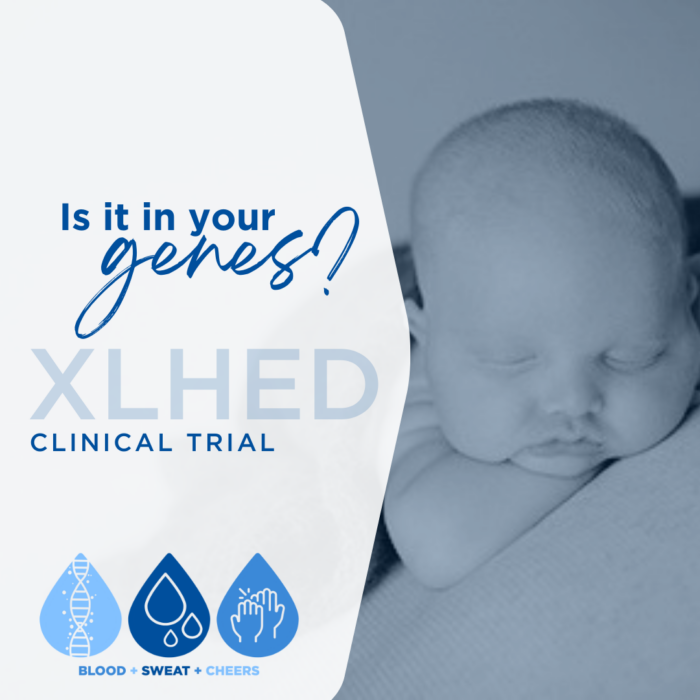
You can help us spread the word about the clinical trial and ensure that families who may qualify to participate are aware and can make an informed decision about volunteering for the trial. Although the trial is seeking pregnant women to participate, everyone can help share information! Regardless if you are a man or a woman, find out what you can do, below.
Learn More
The NFED hosted an informational webinar about the EDELIFE clinical trial for its members in April of 2023. You can watch the recording of the webinar below to learn more about the science behind the potential treatment, who is eligible to participate and what participants can expect.
Presenters include:
- Dr. Kathy Grange, a member of our Scientific Advisory Council and the principal investigator for the U.S. trial site at Washington University in St. Louis, Missouri.
- Mary Fete, executive director for the NFED.
- Families who have participated in past studies, whose baby boys were previously given the potential treatment in utero.
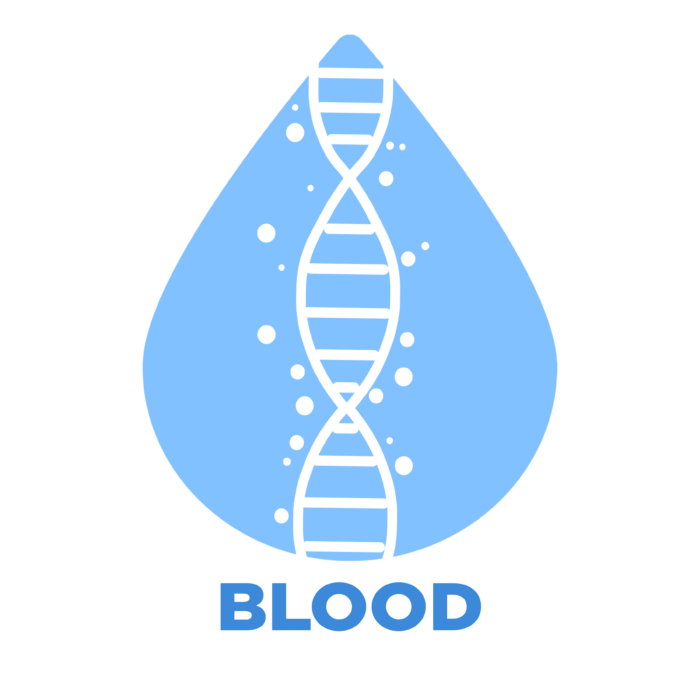
Why do we need your help? Like all clinical trials, the study needs to have enough participants to evaluate the potential treatment before it can be made available to the public. The trial sponsors are looking for 15-20 expectant mothers to participate. This can be a challenge because XLHED is a very rare genetic condition and some parents don’t realize their baby is affected until after birth, which is too late to receive the treatment.
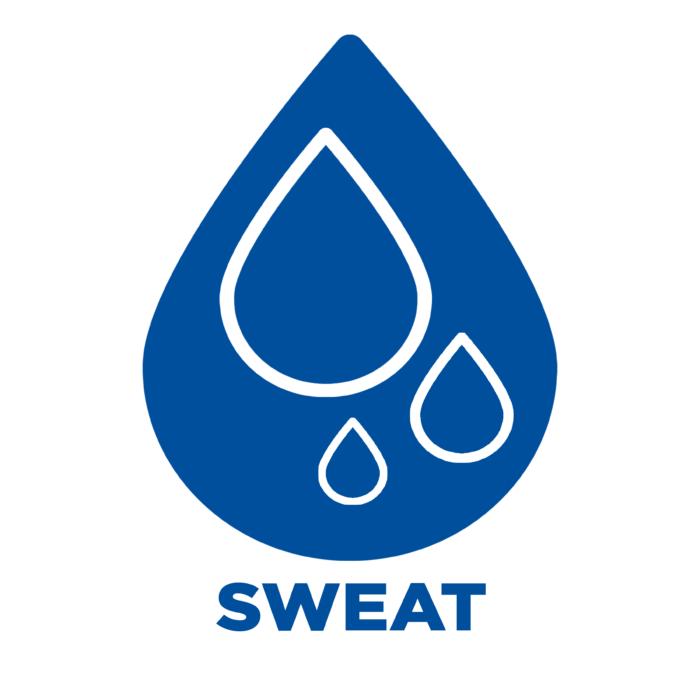
What does it do? In prior studies, the treatment has shown very promising results. Baby boys who received the treatment in-utero, developed more sweat glands and tooth buds, in addition to other symptom improvements. Yes, you read that right. These babies who are affected by x-linked hypohidrotic ectodermal dysplasia (hypohidrosis means decreased ability to sweat) were born with the ability to sweat. Wow!
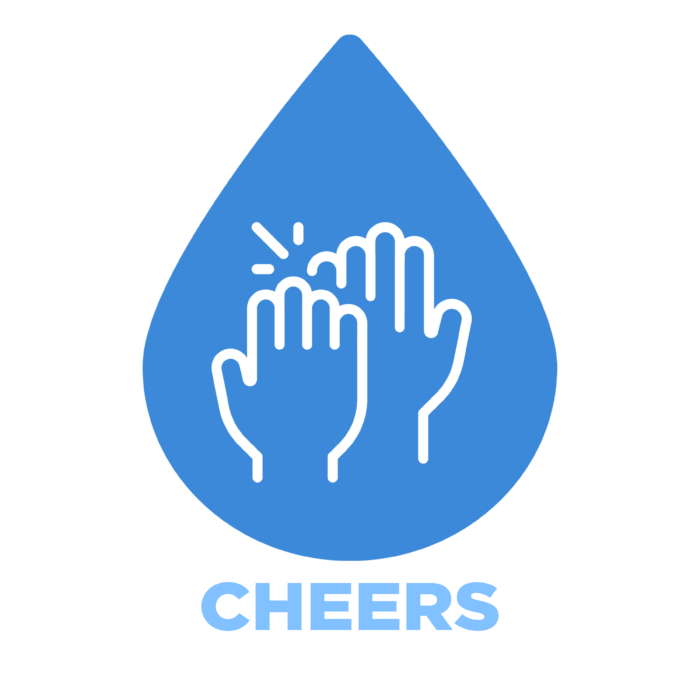
If the trial is successful, it could lead to the first approved treatment for XLHED that is available on the market. With more teeth to chew and begin digesting their food and the ability to sweat, these boys will have an increased quality of life. There are other improved symptoms, too. And that is life-changing!
FOR WOMEN
Are you a woman with a known or potential diagnosis of hypohidrotic ectodermal dysplasia (HED)?
Do you know the inheritance pattern of your syndrome? There are multiple ways that HED is passed from parent to child. Sometimes, it occurs due to a random mutation or change in a gene. This genetic change is no one’s fault and not preventable.
This trial is specifically for individuals affected by x-linked hypohidrotic ectodermal dysplasia. Women who are affected by XLHED may show minor to no symptoms of HED, but may have a fully affected father. Or, the mutation in the gene may be new in her and she’s the first in her family to have it.
If you or a woman you know meets any of the following criteria, you may be eligible to participate:
- Father is affected by HED.
- May or may not be affected by a range of symptoms, including the inability to sweat, sparse hair, trouble breastfeeding, missing or conical-shaped teeth, dry skin and/or eczema, abnormal nails and more.
- Given birth to a child affected by HED.
- Known diagnosis of XLHED.
And if you are of both of the following:
- Childbearing age (18 to 40 years old).
- Currently pregnant or planning a pregnancy in the near future.
If you suspect you may have XLHED but do not have a genetic test confirming your diagnosis, we can provide financial support to get the necessary genetic testing. While a confirmed test is required to participate, please do not wait to reach out about the trial. We want to speak with you now so you don’t miss the treatment window at pregnancy weeks 26 – 32.
Participation in any type of research is a personal decision. We recommend that you learn as much as you can about the trial and potential treatment to help in that decision. Check out the blog posts below to learn from other mothers who participated in prior trials about their experience and the results they have seen.
If you are interested in financial assistance for genetic testing or have any questions about the trial, we would love to talk to you. Please email our executive director, Mary Fete, at mary@nfed.org to start the conversation.
Read About Past Trial Results
FOR MEN
Are you a man with a known or potential diagnosis of HED?
Although you are not eligible to participate in the study, as the potential treatment must be given prior to birth, you can help the women in your family understand if they are eligible and potentially help their unborn children experience less symptoms of HED than you have!
What would life be like if you didn’t have to worry about overheating or if you had more teeth? This treatment could potentially change that for your unborn nephews, cousins and grandsons! Isn’t that a miracle?
It’s important for men affected by HED to know that, depending on the inheritance pattern of your syndrome, you could have daughters, nieces or other female relatives that are affected but don’t show symptoms or have less severe symptoms than you.
Will you help us spread the word about this life-changing clinical trial? Share this page and this flyer with anyone in your family that may be affected and encourage them to sign up for more information. You can also sign up to continue to receive information and updates below!

"*" indicates required fields
